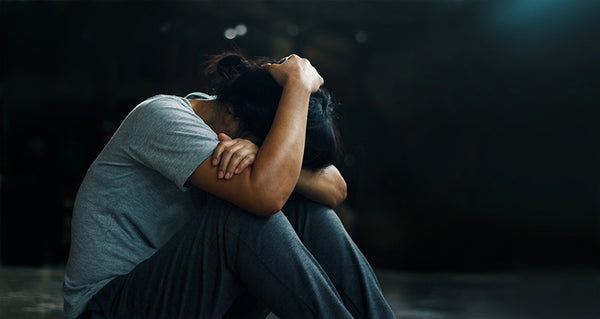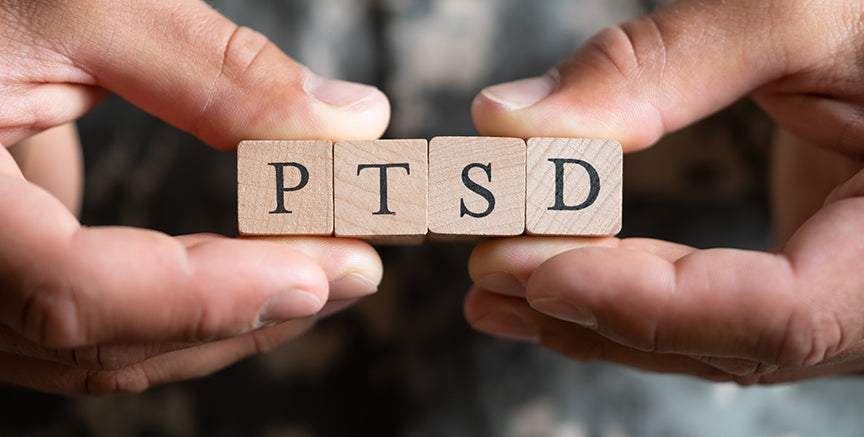Posttraumatic Stress Disorder, more commonly known as PTSD, affects 6 percent of the population, or 12 million adults in the U.S. every year. While some might assume that a majority of PTSD cases involve someone in the military, that’s not always the case. Children, as well as adults, can suffer from PTSD. Something that isn’t talked about much, though, is the effects of PTSD on sleep.

PTSD on Average
According to U.S. Department of Veterans Affairs, the number of veterans who suffer from PTSD range from 11 to 30 percent, depending on when and where they served. Recently, a study found that as many as 500,000 troops who served in Iraq and Afghanistan have been diagnosed with PTSD.
While it might take many years of therapy to help in some instances of PTSD, one of the more pressing problems is PTSDs effect on sleep. Insomnia, nightmares, night terrors, and more, are just a few of the issues some people have while sleeping with PTSD.
Sleep Problems and PTSD
Sleep is tied to memory. It helps pull together and make sense of memories — specifically emotional memories — and fits new memories into existing ones. So, among other things, a person needs sleep in order to sort out and process a traumatic event.
Sleep is also important for learning. And one important step in recovering from a trauma is to learn reminders of a traumatic event are not dangerous and that you can feel safe again. Therefore, it makes sense that reduced quality of sleep is a risk factor for PTSD.
Because people with PTSD may try to push away trauma memories during the day, it may cause worries to get worse at night and disrupt sleep. Here are some examples:
- Avoidance: People with PTSD may avoid going to sleep. Nightmares and flashbacks — feeling like the trauma is happening again — can create fear or feeling as if going to bed is unsafe.
- Loss of sleep time: Whether or not insomnia is diagnosed, people with PTSD often report less sleep due to problems falling asleep, being restless during the night and waking up earlier than wanted. Even brief periods of sleep loss can affect daily life.
- Increased arm and leg movement: After a trauma, people may have more arm and leg movements during sleep. This can make someone feel restless.
- Talking during sleep. After a trauma, people may talk more in their sleep. Talking during sleep can affect bed partners.
- Feeling "on alert”: People with PTSD may feel the need to be on guard, to protect themselves from danger. It is difficult to have restful sleep when you feel the need to be always alert or are startled easily by noise.
- Not liking silence: Some may be uneasy with silence after a trauma. When this happens, a person may keep a television on all night. Changes in light and sound can disrupt the deepest and most needed level of sleep.

Finding Good Sleep with PTSD
For those who suffer from PTSD, finding a good night’s sleep isn’t going to happen immediately. In fact, it might take some time, depending how the severity of the trauma. There are ways to help you get back on a solid sleep schedule.
First and foremost, those with PTSD should see a doctor or therapist. Antidepressants are currently the preferred initial class of medication for PTSD. Though sleep medication might also be prescribed, it should be noted that this type of medication can cause a dependency and lose its effectiveness over time.
Common ways to help get a better night sleep with PTSD:
- Try to relax or meditate before going to bed
- Take a warm bath before bed
- Keep a routine – go to bed at the same time every night and wake up at the same time every morning
- Look into using a weighted blanket for support
Help Sleeping with PTSD
We cannot stress enough the importance of talking to someone if you are suffering from a traumatic experience. There is absolutely no shame in finding a therapist to talk to so you can get better.
In the meantime, know that the folks at Mattress Warehouse care about your wellbeing and want to help you find a mattress that is right for you and will help you sleep better.
Visit your local Mattress Warehouse location and talk to one of our sleep specialists. We hope you are able to find the help – and sleep – you need.
